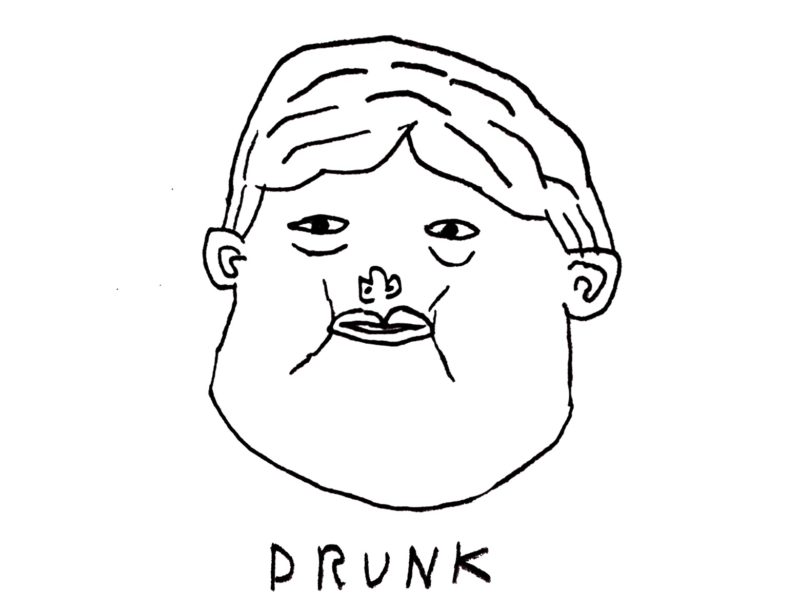Two jokes walk into a bar. The bartender says he’ll be back in three shakes of a lamb’s tail and
disappears in broad daylight out the front door. The jokes hold hands and wait for the bartender
to return. A third joke walks in. He clears his throat, and off the top of his head he begins: “A
little Madness in the Spring / Is wholesome even for the King, / But God be with the Clown—/
Who ponders this tremendous scene—.” “Emily Dickinson,” says the first joke. “Nicely done.”
The third joke is genuinely impressed. It is rare a joke so quickly gets it. All three jokes hold
hands and wait for the bartender to return. The second joke’s father is dying, but he doesn’t
want to talk about it. Instead he thinks about the bartender who will be back once the lamb’s
tail shakes three times. Why is it “shake” of a lamb’s tail, and not “wag”? “Wag” suggests the lamb
is happy and free, while “shake” sounds like “shank,” which brings to the table the lamb’s dumb
truth: It will eventually be eaten. The jokes hold hands and wait for the bartender to return.
The bartender’s name is Bob. Bob Oranges. He’s a friendly if slightly boring guy who will never
return, and somewhere deep inside, the jokes know this already. From far off there is the faintest
sound of children playing. It is noon and the jokes are in a bar. “If we were the Fates,” poses the
second joke, “which one of us do you think would hold the scissors?” Jokes one and three laugh
nervously because this is clearly a rhetorical question. There is no way a joke would parade
as a Fate. Most jokes would sooner drown themselves. The jokes warn the second joke not to
even joke about this. But the second joke is angry. His father is dying. The first joke exchanges
a worried look with the third. “Did I tell you about the dream I had last night?” The first joke is
trying to lighten the mood. “Franz Kafka was walking up and down this beach. It looked a lot
like the one I used to go to as a kid. You know, where I’d build sandcastles and stuff.” He pauses,
smirks. “So in this dream I walk towards Kafka, and as I approach I realize he’s singing ‘Try a
Little Tenderness.’ Like full blast. Like really belting it out.” Just as the jokes are about to laugh, a
bartender walks into the bar. It is not Bob Oranges. It is a different bartender. “What did I miss?”
asks the bartender. The first joke tells him his dream. The bartender...
You have reached your article limit
Sign up for a digital subscription and continue reading all new issues, plus our entire archives, for just $1.50/month.
Already a subscriber? Sign in





